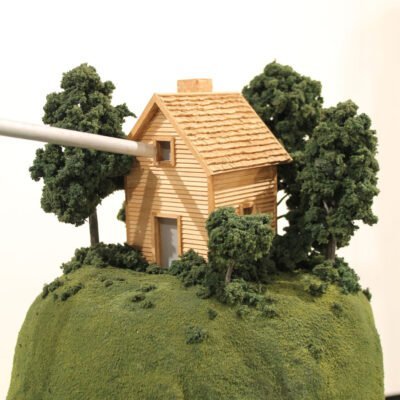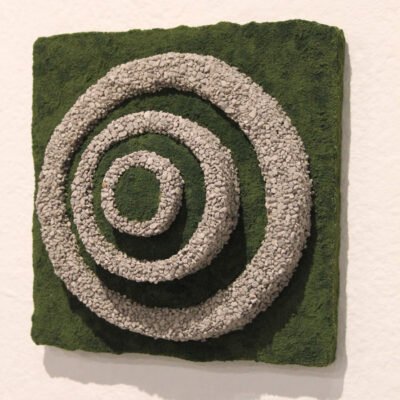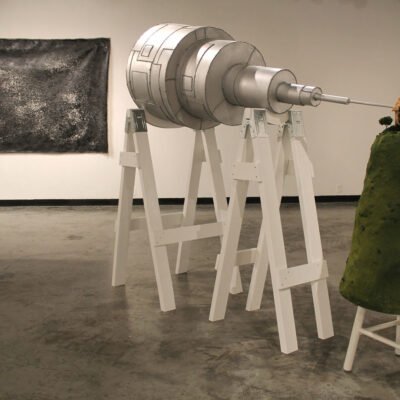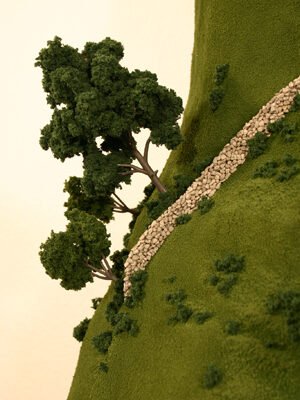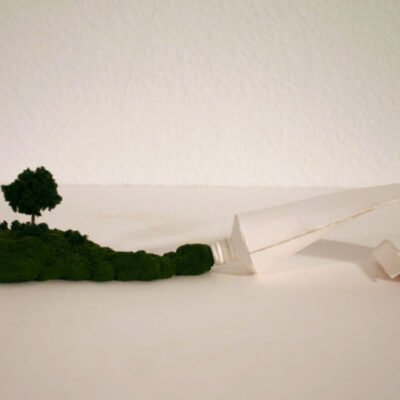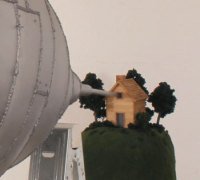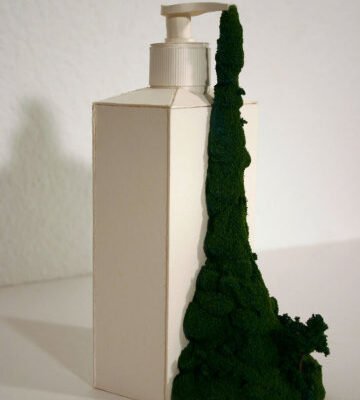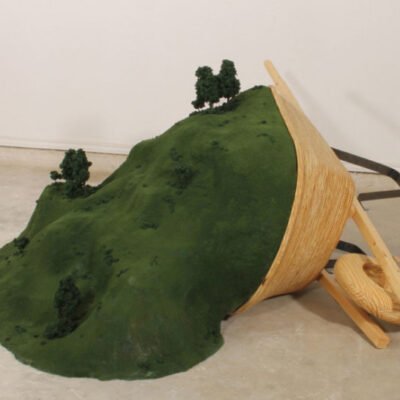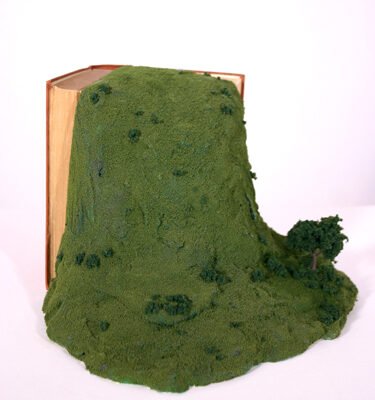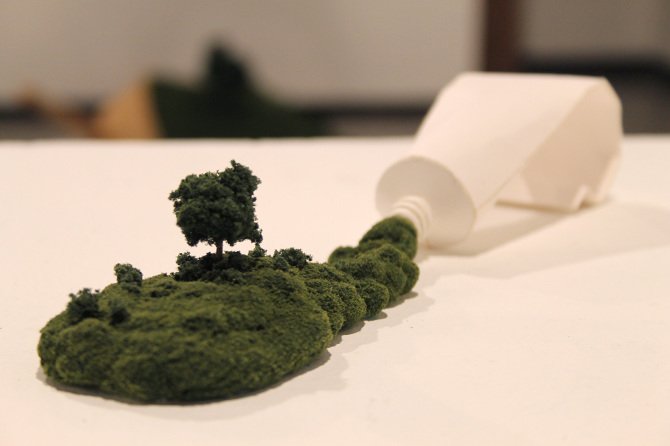

Emily Fleisher
Emily Fleisher plays with scale and space, with interior and exterior in very unexpected ways. Grass and trees tumble from familiar objects as the landscape appears to escape, protesting its confinement. By conjuring an endless landscape contained within the most mundane objects, Fleisher dismisses boundaries and suggests that even ordinary things withhold insight into the monumental; a universe resides within a soap dispenser or a tube of toothpaste providing moments of revelation.
Fleisher states: “My work has always played with the connections between the most mundane elements of daily life and the most elusive, or intangible aspects of life. I make use of the physicality of space and blend depictions of interiors with the exterior landscape, erasing imposed borders. My current environment, in suburban San Antonio, has further influenced these ideas. As I settled in here a few years ago, I became hypersensitive to the things that pop out as atypical in the rather bleak suburban landscape. These interruptions break my expectations of my environment and feel like mini moments of revelation. I feel that the most ordinary of things are withholding moments of insight into the monumental.
My mother used to give me pastina quite often as a child, and it’s turned into a symbol of comfort. I remember being a bit mesmerized by the box itself, which was filled with a seemingly infinite number of tiny pasta stars. I could dip my hand in and strain them through my fingers. It feels like all the stars in the universe could fit within that box of pasta – it’s also sort of a metaphor of the big bang. I like the idea of using something that I’ve known and held in my hands my whole life to depict the nearly inconceivable.”
_____________________________________________________________________________
Emily Fleisher juega con la escala y el espacio, con el interior y el exterior de maneras muy inesperadas. La hierba y los árboles caen de objetos familiares mientras el paisaje parece escapar, protestando por su confinamiento. Al evocar un paisaje infinito contenido en los objetos más mundanos, Fleisher descarta los límites y sugiere que incluso las cosas ordinarias impiden comprender lo monumental; Un universo reside dentro de un dispensador de jabón o un tubo de pasta de dientes que brinda momentos de revelación.
Fleisher afirma: “Mi trabajo siempre ha jugado con las conexiones entre los elementos más mundanos de la vida diaria y los aspectos más esquivos o intangibles de la vida. Hago uso de la fisicalidad del espacio y combino representaciones de interiores con el paisaje exterior, borrando fronteras impuestas. Mi entorno actual, en los suburbios de San Antonio, ha influido aún más en estas ideas. Cuando me instalé aquí hace unos años, me volví hipersensible a las cosas que parecen atípicas en el paisaje suburbano bastante sombrío. Estas interrupciones rompen mis expectativas sobre lo que me rodea y las siento como mini-momentos de revelación. Siento que las cosas más cotidianas me ocultan momentos de percepción de lo monumental.
Mi madre solía darme pastina con bastante frecuencia cuando era niña y se ha convertido en un símbolo de consuelo. Recuerdo que me sentí un poco hipnotizado por la caja en sí, que estaba llena de una cantidad aparentemente infinita de diminutas estrellas de pasta. Podría sumergir mi mano y pasarlos entre mis dedos. Parece como si todas las estrellas del universo pudieran caber dentro de esa caja de pasta – también es una especie de metáfora del big bang. Me gusta la idea de utilizar algo que he conocido y tenido en mis manos toda mi vida para representar lo casi inconcebible”.
